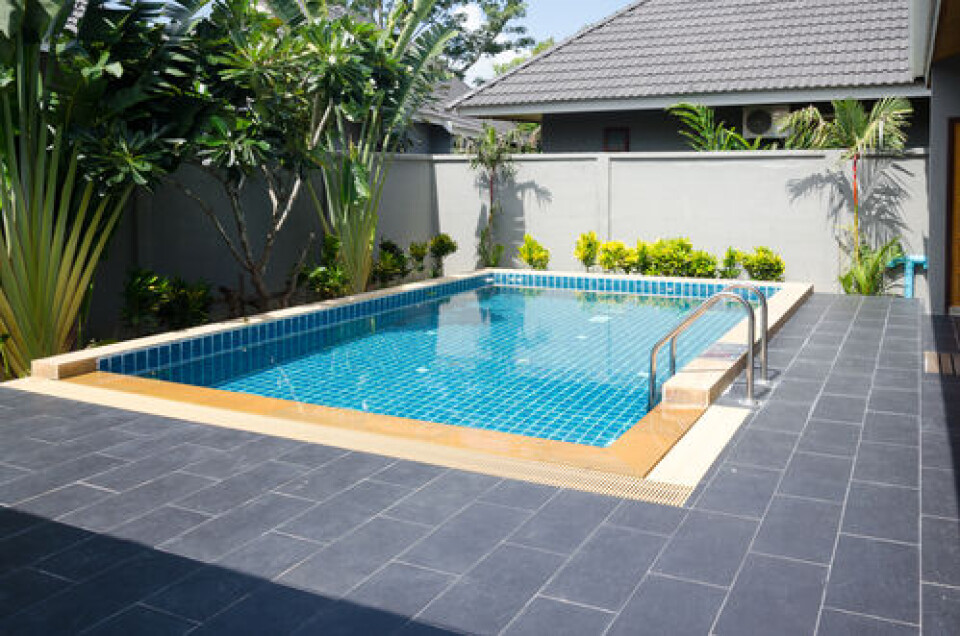-
Taxe foncière: how to ask for delay, reduction, or cancellation of French property tax
Taxe foncière relief is possible at any time
-
How to save money on your French tax bill by giving to charity this year
Gifts to good causes before January can be declared in your spring 2026 tax return
-
Why am I suddenly being charged withholding tax in France?
Upcoming instalments can be viewed through personal space of French tax site
Can I add a swimming pool to French home without paying more in tax?
We explain the different taxes that come into play when building a pool and look into circumstances where you do not need to pay them

Reader Question: I’d like to have a swimming pool built at my second home but can’t work out how much extra local tax would be due for this. Would a very small ‘cooling down’ pool avoid tax and, if so, what is the maximum size it can be?
There are several different taxes that could apply when it comes to swimming pools.
Local property taxes: taxe foncière and taxe d’habitation
Both these taxes are calculated based on a concept called the valeur locative cadastrale, this is the annual rent that a property could theoretically generate if rented out.
So, the more valuable your property is considered in terms of renting out, the higher the valeur locative cadastrale and the more you will pay in taxe foncière and taxe d’habitation (if the latter is still applicable to you).
A spokesperson for the Fédération des Professionnels de la Piscine confirmed that a pool that is fixed in place and cannot be dismantled, whether it is above or below ground, will increase the valeur locative cadastrale of a property.
She added that some people who install small swimming pools may not declare them and so will avoid an increase in property taxes but legally they should be declared.
Checks on undeclared pools are made.
Read more: Undeclared swimming pool detection system to be used across France
You should declare your pool to the tax authorities 90 days after the end of the construction work and will normally benefit from a two-year taxe foncière exemption.
If our reader does not want to pay more in tax for a swimming pool, then they would need to have a non-fixed pool that can be disassembled and moved, for example an inflatable pool.
It should be noted that the taxe d’habitation is being phased out and by 2023, no household will pay any taxe d’habitation on their main residence. However, second-home owners such as our reader are still subject to this tax.
Taxe d’aménagement (garden shed tax)
The other tax that can apply to swimming pools is the taxe d’aménagement, the so-called ‘garden shed’ tax.
This one-off tax is paid on most constructions requiring authorisation from the council, whether formal planning permission or just prior declaration.
This tax also applies to swimming pools over 10 square metres (or smaller ones if they are located in a conservation area, next to a historic monument, at a listed building etc).
Pool design company Piscinelle states that for a pool of 50 square metres the taxe d’aménagement would have cost around €425 in 2021, depending on which department the property was in.
If you are building a fixed, non-dismantlable pool with a surface area of between 10 and 100 square metres, you will need to submit a déclaration préalable de travaux to your local mairie. This is an administrative authorisation that is easier to obtain than a permis de construire, which you will need for pools over 100 square metres.
Summary
The main way to avoid paying any taxes on a swimming pool is to get a temporary pool, for example, one that is inflatable.
You can usually avoid paying the taxe d’aménagement on a fixed, non-dismantlable pool if it is under 10 square metres. However, this pool would still increase the valeur locative cadastrale of the property and so should therefore increase the taxe foncière and taxe d’habitation.
If you declare your pool to the tax authorities 90 days after the end of the construction work, you will normally benefit from a two-year taxe foncière exemption.
Related articles
Do swimming pools show up on French taxe foncière bills?
Residents in French town donate pool water for parched green spaces
Are above ground pools subject to the taxe foncière in France?
Garden pool and veranda taxes, squatters: Four French property updates
























